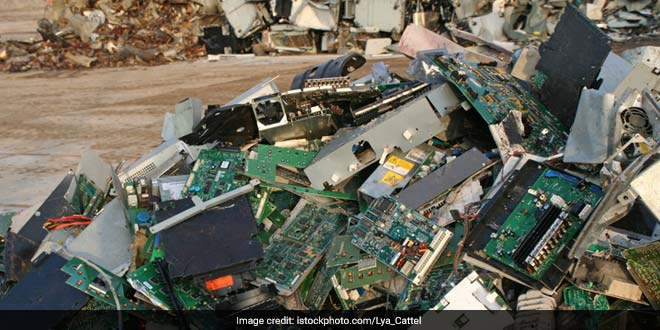Highlights
- Lack of recycling infrastructure in Odisha complicates the situation
- E-waste is projected to rise from 1,236.50 MT to 2050.71 MT by 2021
- E-waste management is a highly unorganised business
Bhubaneswar: MAIT (Manufacturers Association for Information Technology), a body representing India’s IT hardware, training and Research and Development (R&D) service sectors, said E-waste in Odisha is set to touch 2050 Million Tonnes (MT) by 2021 and the state must set up recycling units for collection as part of steps to properly manage it.
“E-waste in Odisha is projected to rise from 1,236.50 MT to 2050.71 MT by 2021 requiring imminent action from the state to properly manage e-waste,” MAIT said in a statement.
E-waste management in Odisha as well as in other states is a highly unorganised business, said Anwar Shirpurwala, Executive Director of MAIT.
He said the state needed to set up recycling units for collection of e-waste and organise the informal sector by forming a network and convince them that their livelihood and income will not be hampered.
The key aspects of e-waste management and the E-waste Management Rules 2016 were highlighted at a workshop organised by MAIT here on Wednesday. The workshop also focused on responsibilities of manufacturers and bulk consumers under the new e-waste management rules to raise awareness.
Also Read: Japanese Company Gives Financial Aid For Improving Odisha’s Sewerage System
MAIT said the focus should be to raise awareness across various levels of society to reduce adverse impact of e-waste on environment and health arising out of the polluting technologies used in recycling in unorganised sector.
Furthermore, the lack of recycling infrastructure in Odisha complicates the situation, he said.
The workshop, attended by senior officials of State Pollution Control Board, IT Department, manufacturers, experts and dealers of electronic products and electronic garbage collectors, stressed on enhancing e-waste management.
MAIT’s recommendations include improving the supply chain by providing skill development training and incentives under programmes such as Stand-up India and Start-up India.
It also suggested setting-up of collection centres for an organised collection of e-waste and to make collection of e-waste a mass movement.
MAIT also recommended steps for mandating companies to spend a good proportion of their CSR funds to build better e-waste collection and processing infrastructure.






























